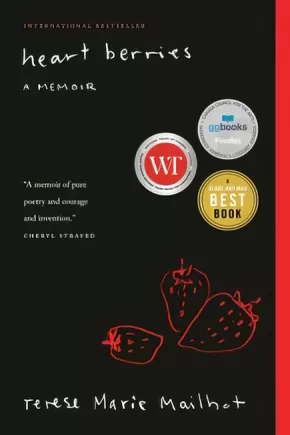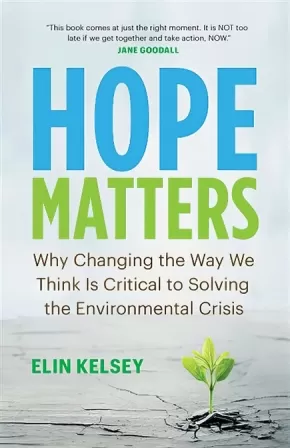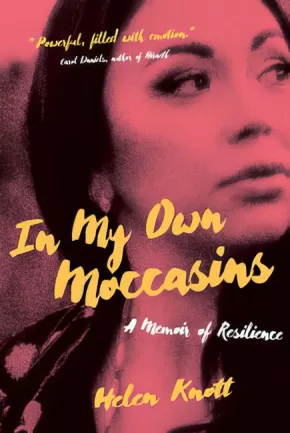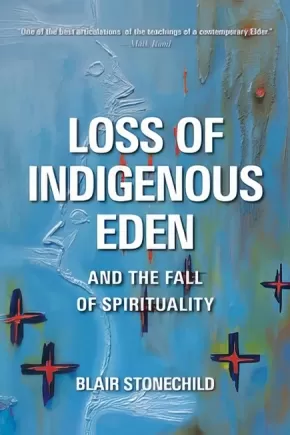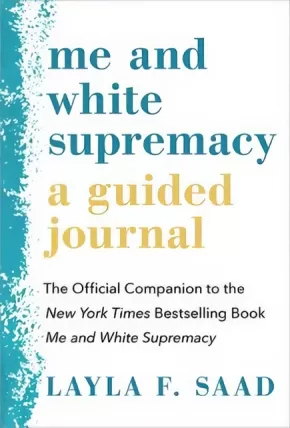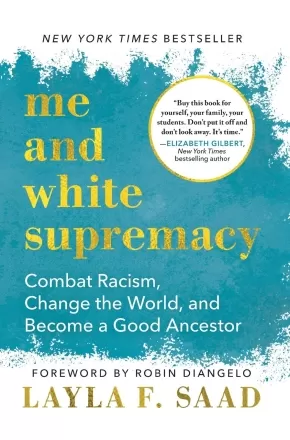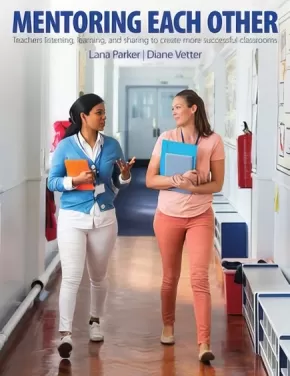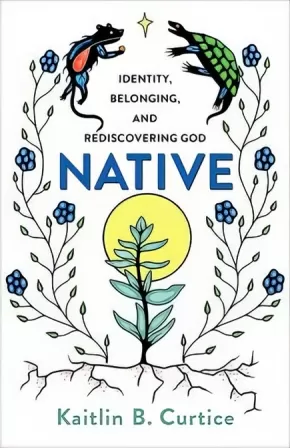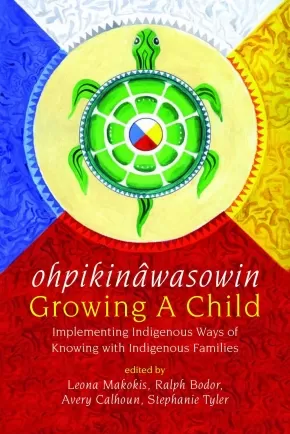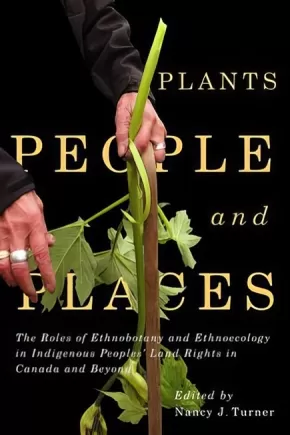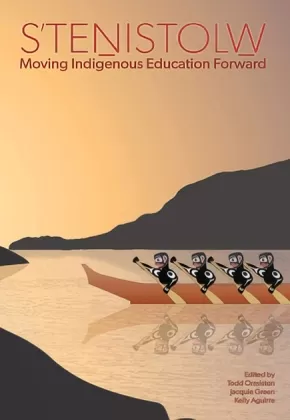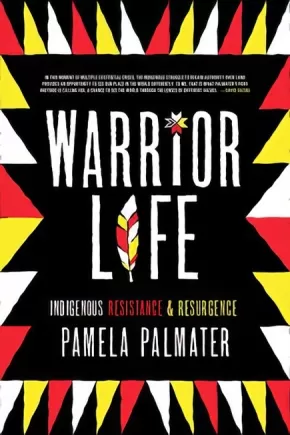Healing and Wellness
Synopsis:
Guileless and refreshingly honest, Terese Mailhot's debut memoir chronicles her struggle to balance the beauty of her Native heritage with the often desperate and chaotic reality of life on the reservation.
Heart Berries is a powerful, poetic memoir of a woman's coming of age on the Seabird Island Indian Reservation in British Columbia. Having survived a profoundly dysfunctional upbringing only to find herself hospitalized and facing a dual diagnosis of Post Traumatic Stress Disorder and Bipolar II, Terese Mailhot is given a notebook and begins to write her way out of trauma. The triumphant result is Heart Berries, a memorial for Mailhot's mother, a social worker and activist who had a thing for prisoners; a story of reconciliation with her father--an abusive drunk and a brilliant artist--who was murdered under mysterious circumstances; and an elegy on how difficult it is to love someone while dragging the long shadows of shame.
Mailhot "trusts the reader to understand that memory isn't exact, but melded to imagination, pain and what we can bring ourselves to accept." Her unique and at times unsettling voice graphically illustrates her mental state. As she writes, she discovers her own true voice, seizes control of her story and, in so doing, reestablishes her connection to her family, to her people and to her place in the world.
Educator Information
This book is available in French: Petite Femme Montagne
Additional Information
144 pages | 5.00" x 7.50" | Paperback
Synopsis:
Fears about climate change are fueling an epidemic of despair across the world: adults worry about their children’s future; thirty-somethings question whether they should have kids or not; and many young people honestly believe they have no future at all.
In the face of extreme eco-anxiety, scholar and award-winning author Elin Kelsey argues that our hopelessness—while an understandable reaction—is hampering our ability to address the very real problems we face. Kelsey offers a powerful solution: hope itself.
Hope Matters boldly breaks through the narrative of doom and gloom to show why evidence-based hope, not fear, is our most powerful tool for change. Kelsey shares real-life examples of positive climate news that reveal the power of our mindsets to shape reality, the resilience of nature, and the transformative possibilities of individual and collective action. And she demonstrates how we can build on positive trends to work toward a sustainable and just future, before it’s too late.
Reviews
“Like Elin, I have met countless people who have lost hope in many countries. Most were apathetic. Some were angry. Others depressed. Because, they told me, their future has been compromised and there was nothing they could do about it. But there is something they can do. This book comes at just the right moment. It brings a message of hope to help curb the negativity, the gloom and doom we are confronted with each day. It is NOT too late if we get together and take action, NOW.” —Jane Goodall, PhD, DBE, founder of the Jane Goodall Institute and UN Messenger of Peace
“Elin Kelsey is that rare creature—perhaps unique?—who writes with the acuity of a scientist, the grace of a poet, and the heart of a mother. After decades of fighting the good fight on behalf of her beloved oceans and their wildlife, she realizes that our conversations about environmentalism are often thwarted by overwhelming doubt and despair. Hope Matters is a clarion call to reawaken our spirits and renew our efforts, filled with engaging success stories, lyrical nature writing, and actionable ideas. 'We can recognize the urgency of the problem and be inspired by the resilience of other species,' Kelsey writes. This is a book to inspire resilience: for our children, for our leaders, for ourselves.”— Anne Nelson, Fellow, Arnold A. Saltzman Institute, Columbia University School for International and Public Affairs, and author of Suzanne’s Children: A Daring Rescue in Nazi Paris
“In a time when so much of the news on biodiversity is depressing, Dr. Elin Kelsey reminds us that there are good reasons to be hopeful. This book is a tonic in hard times.”—Claudia Dreifus, instructor in Columbia University’s Masters in Sustainability Management program and author of Scientific Conversations: Interviews on Science from the New York Times
Additional Information
240 pages | 5.50" x 8.50"
Synopsis:
Helen Knott, a highly accomplished Indigenous woman, seems to have it all. But in her memoir, she offers a different perspective. In My Own Moccasins is an unflinching account of addiction, intergenerational trauma, and the wounds brought on by sexual violence. It is also the story of sisterhood, the power of ceremony, the love of family, and the possibility of redemption.
With gripping moments of withdrawal, times of spiritual awareness, and historical insights going back to the signing of Treaty 8 by her great-great grandfather, Chief Bigfoot, her journey exposes the legacy of colonialism, while reclaiming her spirit.
Reviews
"A beautiful rendering of how recovery for our peoples is inevitably about reconnecting with Indigenous identities, lands, cultural and healing practices." —Kim Anderson, author of Reconstructing Native Womenhood
"In My Own Moccasins never flinches. The story goes dark, and then darker. We live in an era where Indigenous women routinely go missing, our youth are killed and disposed of like trash, and the road to justice doesn’t seem to run through the rez. Knott’s journey is familiar, filled with the fallout of residential school, racial injustice, alcoholism, drugs, and despair. But she skillfully draws us along and opens up her life, her family, and her communities to show us a way forward. It’s the best kind of memoir: clear-eyed, generous, and glorious….Bear witness to the emergence of one of the most powerful voices of her generation." —Eden Robinson, author of Son of a Trickster and Monkey Beach (from the foreword)
“Helen Knott speaks truth to the experience of Indigenous women living through the violence of colonized spaces and she does so with grace, beauty and a ferocity that makes me feel so proud.” —Leanne Betasamosake Simpson, author of This Accident of Being Lost
“Helen writes beautifully and painfully, about her own life and the lives of many of our sisters. A strong, gentle voice removing the colonial blanket and exposing truth.” —Maria Campbell, author of Halfbreed
“An incredible debut that documents how trauma and addiction can be turned into healing and love. I am in awe of Helen Knott and her courage. I am a fan for life. Wow.” —Richard Van Camp, author of The Lesser Blessed
“Heartfelt, heartbreaking, triumphant and raw, In My Own Moccasinsis a must-read for anyone who's ever felt lost in their life… Actually, it's a must-read for anyone who appreciates stories of struggle, redemption and healing. Knott’s writing is confident, clear, powerful and inspiring.”—Jowita Bydlowska, author of Guy: A Novel and Drunk Mom
Additional Information
366 pages | 6.00" x 9.00"
Synopsis:
In 1867, Canada’s federal government became responsible for the education of Indigenous peoples: Status Indians and some Métis would attend schools on reserves; non-Status Indians and some Métis would attend provincial schools. The chapters in this collection – some reflective, some piercing, all of them insightful – show that this system set the stage for decades of broken promises and misguided experiments that are only now being rectified in the spirit of truth and reconciliation. The contributors individually explore what must change in order to work toward reconciliation; collectively, they reveal the possibilities and challenges associated with incorporating Traditional Knowledge and Indigenous teaching and healing practices into school courses and programs.
Reviews
"This book provides innovative reflections on long-standing issues in Indigenous education in Canada and suggests possible pathways to address the educational debt that Canada owes Indigenous peoples. I recommend it to educators, students, and administrators, to anyone interested in learning about the history of residential schools, and to all readers who are interested in reconciliation and decolonisation." — Valentina de Riso, Nottingham Trent University, British Journal of Canadian Studies
"There is no doubting the importance of the subject tackled by this edited collection... In eleven highly diverse chapters, plus a substantial introduction by editor Sheila Carr-Stewart, this collection seeks to shed light on the mechanisms of educational exclusion and sound out the prospects for a different kind of education in the future." — Mark Fettes, Simon Fraser University, University of Toronto Quarterly
"Readers who are new to the topic, such as practicing teachers who wish to enhance their responsiveness to Indigenous students or undergraduate history majors, will gain accessible historical and policy context, alongside complex and nuanced representations of the challenges that pervade Indigenous education today." — Heather E. McGregor, Historical Studies in Education
"Knowing the Past, Facing the Future is critical reading for those invested in Indigenous education, as all Canadians ought to be. By confronting colonialism and racism as they intersect with reconciliation, the contributors of this collected work address the role and responsibility of education in decolonizing a society. I recommend this book be read by all educators."— Margaret Kovach, author of Indigenous Methodologies: Characteristics, Conversations, and Contexts
"New and seasoned readers to Indigenous education in Canada will value how the authors tackle old issues in new ways, uncover challenges that have been ignored, and present innovative possibilities that learn from the past for a much better future."— Jo-ann Archibald (Q’um Q’um Xiiem), co-editor of Decolonizing Research: Indigenous Storywork as Methodology
"This must-read collection of essays provides needed historic reflections on treaties and Indigenous peoples’ aspirations for education, and much needed insight, support, and research to address the reconciliation agenda and correct the longstanding educational debt owed Indigenous peoples."— Marie Battiste, author of Decolonizing Education: Nourishing the Learning Spirit
Educator Information
Contributors: Jonathan Anuik, Michael Cottrell, Karlee D. Fellner, Rosalind Hardie, Darryl Hunter, Harry Lafond, Solange Lalonde, Brooke Madden, Yvonne Poitras Pratt, Jane P. Preston, Larry Prochner, Noella Steinhauer
Additional Information
312 pages | 6.00" x 9.00" | Paperback
Synopsis:
As a follow-up to his award-winning The Knowledge Seeker: Embracing Indigenous Spirituality, Blair Stonechild continues his exploration of the Indigenous spiritual teachings passed down to him by Elders, and then moves his study further afield. He identifies the rise of what he terms a dominant wetigo worldview, marked by an all-consuming and destructive appetite that is antithetical to the relational philosophy of Indigenous thinking whereby all things are interrelated and in need of care and respect.
Based on Stonechild’s work with Indigenous peoples around the world, from Inuit communities in northern Canada, to the Mapuche in Chile, the Dalits in India and the Uighurs in the Xinjiang Autonomous Region of China, The Loss of Indigenous Eden and the Fall of Spirituality brings together and highlights the fundamental commonalities that connect all Indigenous nations, while calling for global recognition and respect of their rights and spirituality.
Reviews
“One of the best articulations in print of some introductory teachings of a contemporary Elder.” —Mark Rumi, professor of Religion and Culture, University of Winnipeg
“It is thought-provoking, philosophical, informative, and celebrates the resilience and strength of Indigenous spirituality and our relationships to the sacred.” —Kathleen E. Absolon-King, author of Kaandossiwin
Additional Information
288 pages | 6.00" x 9.00"
Synopsis:
Author Layla F. Saad wrote Me and White Supremacy to encourage people who hold white privilege to examine their (often unconscious) racist thoughts and behaviors through a unique, 28-day reflection process complete with journaling prompts. This guided journal, which includes the book's original weekly prompts and lots of space for note-taking and free-writing, is the perfect place to begin your antiracism journey. You will unpack:
Week One: White Privilege; White Fragility; Tone Policing; White Silence; White Superiority; White Exceptionalism
Week Two: Color Blindness; Anti-Blackness against Black Women, Black Men, and Black Children; Racist Stereotypes; Cultural Appropriation
Week Three: White Apathy; White Centering; Tokenism; White Saviorism; Optical Allyship; Being Called Out/Called In
Week Four: Friends; Family; Values; Losing Privilege; Your Commitments.
Awareness leads to action, and action leads to change. Create the change the world needs by creating change within yourself.
Additional Information
304 pages | 5.25" x 7.75"
Synopsis:
This eye-opening book challenges you to do the essential work of unpacking your biases, and helps white people take action and dismantle the privilege within themselves so that you can stop (often unconsciously) inflicting damage on people of color, and in turn, help other white people do better, too.
Based on the viral Instagram challenge that captivated participants worldwide, Me and White Supremacy takes readers on a 28-day journey, complete with journal prompts, to do the necessary and vital work that can ultimately lead to improving race relations.
Updated and expanded from the original workbook (downloaded by nearly 100,000 people), this critical text helps you take the work deeper by adding more historical and cultural contexts, sharing moving stories and anecdotes, and including expanded definitions, examples, and further resources, giving you the language to understand racism, and to dismantle your own biases, whether you are using the book on your own, with a book club, or looking to start family activism in your own home.
This book will walk you step-by-step through the work of examining:
- Examining your own white privilege
- What allyship really means
- Anti-blackness, racial stereotypes, and cultural appropriation
- Changing the way that you view and respond to race
- How to continue the work to create social change
Awareness leads to action, and action leads to change.
Reviews
"Layla Saad moves her readers from their heads into their hearts, and ultimately, into their practice. We won't end white supremacy through an intellectual understanding alone; we must put that understanding into action."—Robin DiAngelo, author of New York Times bestseller White Fragility
"Layla Saad is one of the most important and valuable teachers we have right now on the subject of white supremacy and racial injustice."—New York Times bestselling author Elizabeth Gilbert
"As an educator and writer in this space, I well understand the difficulties of productive discourse on topics like white supremacy, white fragility, and complicity. In Me and White Supremacy, Layla not only engages readers effectively – she hands them the tools they need to change themselves so that they can better the lives of millions of people worldwide." - Rachel Cargle, activist, writer, and lecturer
Additional Information
256 pages | 5.25" x 7.75"
Synopsis:
This practical book explores ways teachers can collaborate and learn from each other in formal and informal situations. It demonstrates that a mentoring relationship can benefit both new and experienced teachers. Full of strategies that are practical and easy to implement, the book offers solutions to common questions, opportunities, and challenges that face teachers every day. Based on extensive experience, this highly readable book includes personal histories and experiences around important values and advocates for honest reflection and meaningful feedback. An essential resource for all educators, the book champions reciprocal and ongoing processes of learning, listening, and sharing.
Educator Information
Key Features:
- This book features ready-to-use strategies demonstrate how mentoring for teacher excellence can be easily implemented in daily practice.
- Mentoring Each Other includes practical advice for educators who engage in mentoring relationship as well as valuable suggestions that help new teachers deal with classroom challenges.
- The authors have vast experience as mentors, classroom teachers, and university lecturers who present at major educational conferences across North America.
- This approach to mentoring is applicable to a broad range of professional learning communities and an increase in new teachers entering the system make this a much-needed resource for many.
Additional Information
160 pages | 8.38" x 10.88"
Synopsis:
The recipes and traditions found in this book reflect the culture and the knowledge of the Medicine Wheel, featuring 26 edible and medicinal plants that you can gather in nature as Carrie and her grandmother did.
Create a luxurious and natural beauty regime by crafting your own lotions, soaps and teas from all-natural ingredients. From stress-busting teas and bath bombs to skin-smoothing lotions and creams, get vibrant skin and a healthy glow with Carrie’s creations based on her grandmother’s traditional teachings.
"I remember gathering plants and berries with my grandmother while she shared her stories and her deep understanding of traditional plants and their uses. My grandmother healed us with her medicinal plants—everything from pink eye, sore throats, stomach ailments, aches and pains, and infections. She’d make us these beautiful, healing teas." –Carrie
Additional Information
144 pages | 6.00" x 7.75"
Synopsis:
Native is about identity, soul-searching, and the never-ending journey of finding ourselves and finding God. As both a citizen of the Potawatomi Nation and a Christian, Kaitlin Curtice offers a unique perspective on these topics. In this book, she shows how reconnecting with her Potawatomi identity both informs and challenges her faith.
Curtice draws on her personal journey, poetry, imagery, and stories of the Potawatomi people to address themes at the forefront of today's discussions of faith and culture in a positive and constructive way. She encourages us to embrace our own origins and to share and listen to each other's stories so we can build a more inclusive and diverse future. Each of our stories matters for the church to be truly whole. As Curtice shares what it means to experience her faith through the lens of her Indigenous heritage, she reveals that a vibrant spirituality has its origins in identity, belonging, and a sense of place.
Awards
- Foreword INDIES 2020 Book of the Year Award (SILVER Winner for Religion)
- 2021 Georgia Author of the Year Award (Inspirational)
- 2021 Midwest Book Award (Silver Winner for Religion/Philosophy)
Reviews
"It isn't very often that a book about identity--let alone dismantling white supremacy and patriarchy--reads like a poem, but that's Kaitlin. She is thoughtful decolonization set to music and wrapped in love. Her story is compelling and healing, and her path is an invitation to all of us, even as she challenges our assumptions and imaginations. I treasure each of these sacred words, rooted in her story and in the larger stories we still carry. This book can make all of us both more free and more connected to one another."- Sarah Bessey, author of Miracles and Other Reasonable Things and Jesus Feminist
"In the pages of Native, Kaitlin B. Curtice is a poet, professor, storyteller, and unapologetic truth-teller. This book is required reading for all those committed to learning the truth about the land we live on and the institutions we live inside of. It both stretched me and comforted me--it called me out and called me home. Curtice is a vital artist and teacher, and Native is her most important offering yet. It will remain on my shelf forever." - Glennon Doyle, author of Untamed and founder of Together Rising
"There is no doubt that Christianity has been the handmaiden to the destruction of Indigenous nations. Native is more than Kaitlin Curtice's testament. It is an indigenization of faith and, more important, a moral call not only for the Christian church but for everyone to reckon with the genocidal legacies of US settler colonialism and African slavery. As she humbly puts it, decolonization is an invitation and a gift for humankind to re-establish correct relations with each other--and the earth." - Nick Estes, cofounder of The Red Nation and author of Our History Is the Future: Standing Rock versus the Dakota Access Pipeline, and the Long Tradition of Indigenous Resistance
"Because Curtice's writing is so personal, engaging, hospitable, and invitational, readers quickly come alongside of her, accompanying her in her journey while beginning their own. She weaves stories of journeying, wandering, and creation into the structure of her writing, and invites and then challenges her readers to unpack the hard topics of white supremacy, racism, and European settler colonization that have affected each one of us since the Europeans first arrived in this land determined to strip Native Peoples of every trace of their being--personhood, identity, land, language, culture, and society. . . . Native: Identity, Belonging, and Discovering God serves as a guidebook for us to participate in God's reconciliation with God, with each other, and with ourselves."- Susie Carter-Wiggins, Presbyterian Outlook
Educator Information
Table of Contents
Introduction
Part 1: Beginnings
1. Land and Water
2. Journeying Stories
3. Creation Stories
4. My Own Beginning
Part 2: Searching for Meaning
5. The Problem of Whiteness
6. Stereotypes and Survival
7. A Heart Language
8. Gifts of Prayer
Part 3: The Struggle for Truth
9. Ceremony
10. Ancestors
11. Self, Examined
12. The Pain of Church Spaces
Part 4: Working
13. Wake-Up Calls
14. When the Church Gets to Work
15. Keeping Watch
16. Fighting Invisibility
Part 5: Bearing Fruit in a New World
17. Finding One Another
18. The Future of Decolonization
19. Returning
20. A New World for Our Children
Afterword
Additional Information
208 pages | 5.50" x 8.40" | Paperback
Synopsis:
“Food is life. Food is the key to vitality, goodness, happiness, and a strong body and mind.”
Compiled by five women living in Igloolik, Nunavut, this collection of recipes brings together healthy traditional country foods—like seal, Arctic char, and caribou—with store-bought produce to create delicious meals that can be an alternative to pre-packaged foods. With details on food safety and storage, as well as information on how to build a healthy, nutritious diet, this book will help even novice cooks feel empowered to begin cooking from scratch at home.
With tasty recipes from land and sea—from Arctic char pizza to caribou chilli—this beautifully photographed cookbook provides wholesome, hearty meals that will become family favourites for years to come.
Additional Information
114 pages | 7.00" x 10.00" | colour photographs | Paperback
Synopsis:
Western theory and practice are over-represented in child welfare services for Indigenous peoples, not the other way around. Contributors to this collection invert the long-held, colonial relationship between Indigenous peoples and systems of child welfare in Canada. By understanding the problem as the prevalence of the Western universe in child welfare services rather than Indigenous peoples, efforts to understand and support Indigenous children and families are fundamentally transformed. Child welfare for Indigenous peoples must be informed and guided by Indigenous practices and understandings. Privileging the iyiniw (First people, people of the land) universe leads to reinvigorating traditional knowledges, practices and ceremonies related to children and families that have existed for centuries.
The chapters of ohpikinâwasowin/Growing a Child describe wisdom-seeking journeys and service-provision changes that occurred in Treaty 6, Treaty 7, and Treaty 8 territory on Turtle Island. Many of the teachings are nehiyaw (Cree) and some are from the Blackfoot people. Taken together, this collection forms a whole related to the Turtle Lodge Teachings, which expresses nehiyaw stages of development, and works to undo the colonial trappings of Canada’s current child welfare system.
Educator Information
Table of Contents
Introduction: Entering the Circle (Leona Makokis, Ralph Bodor, Avery Calhoun, and Stephanie Tyler)
iyiniw tâpwêwin ekwa kiskeyitamowin (Leona Makokis, Ralph Bodor, Avery Calhoun, Stephanie Tyler, Amanda McLellan, Ariel Veldhuisen, Kristina Kopp, Suzanne McLeod, and Sharon Goulet)
miyawata. Family Teachings on Turtle Island (Carolyn Barker)
kayiwatisi. Indigenous Program Indicators (Carol Turner and Ralph Bodor)
ayahpatisi. Practice as Ceremony (Amber Dion, Stephanie Tyler, Christie Pace, and Karen Delver)
tâpwêwin. Foundations of wīcihitāsowin (Angie Pinder and Avery Calhoun)
kîseyihtamowin. miyo ohpikinâwasowin: Igniting Spiritual Fires (Kristina Kopp, Caleb Anacker, Angie Pinder, and Bonda Thompson)
ayawawasowin. pe kīwe Come Home: Indigenous Adoptee Re-Connection with Self, Family and Community (Fran Kuefler Jose and Judy McRee)
kakehtawewin. Bringing Ceremony Home: An Inaugural kiskinohamakewin (Stephanie Tyler and Avery Calhoun)
Conclusion: Closing the Circle
Glossary: English Meaning and Pronunciation of nehiyaw Words
Glossary: English Meaning of nehiyaw Kinship Terms
References
Index
Additional Information
224 pages | 6.00" x 9.00"
Synopsis:
A powerful case for the essential role of plants and environments in recognizing Indigenous Peoples' land rights around the world.
For millennia, plants and their habitats have been fundamental to the lives of Indigenous Peoples - as sources of food and nutrition, medicines, and technological materials - and central to ceremonial traditions, spiritual beliefs, narratives, and language. While the First Peoples of Canada and other parts of the world have developed deep cultural understandings of plants and their environments, this knowledge is often underrecognized in debates about land rights and title, reconciliation, treaty negotiations, and traditional territories. Plants, People, and Places argues that the time is long past due to recognize and accommodate Indigenous Peoples' relationships with plants and their ecosystems. Essays in this volume, by leading voices in philosophy, Indigenous law, and environmental sustainability, consider the critical importance of botanical and ecological knowledge to land rights and related legal and government policy, planning, and decision making in Canada, the United States, Sweden, and New Zealand. Analyzing specific cases in which Indigenous Peoples' inherent rights to the environment have been denied or restricted, this collection promotes future prosperity through more effective and just recognition of the historical use of and care for plants in Indigenous cultures. A timely book featuring Indigenous perspectives on reconciliation, environmental sustainability, and pathways toward ethnoecological restoration, Plants, People, and Places reveals how much there is to learn from the history of human relationships with nature.
Reviews
"Nancy Turner is respected at every level of the field and this book brings together many of the collaborators she has worked with throughout her career. The chapters they contribute are impressive, and as a whole they comprise the collective research and experience of over forty authors all demonstrating how Indigenous peoples, past and present, have contributed to land rights, policies, ethics, and caring for the earth." - Scott Herron, Ferris State University
Educator Information
Benediction: The Teachings of Chief Kwaxsistalla Adam Dick and the Atla’gimma (“Spirits of the Forest”) Dance xvii
Douglas Deur (Moxmowisa), Kim Recalma-Clutesi (Oqwilowgwa), and William White (Kasalid/Xelimulh)
Preface and Acknowledgments xxv
Nancy J. Turner
1 Introduction: Making a Place for Indigenous Botanical Knowledge and Environmental Values in Land-Use Planning and Decision Making 3
Nancy J. Turner, Pamela Spalding, and Douglas Deur
SECTION ONE - INDIGENOUS PEOPLES’ RELATIONSHIPS TO PLANTS AND TERRITORY IN CANADA
Introduction 33
Nancy J. Turner
2 Living from the Land: Food Security and Food Sovereignty Today and into the Future 36
Jeannette Armstrong
3 Nuucaan?ul Plants and Habitats as Reflected in Oral Traditions: Since Raven and Thunderbird Roamed 51
Marlene Atleo (?eh ?eh nah tuu k?iss)
4 Tamarack and Tobacco 65
Aaron Mills
5 Xáxli’p Survival Territory: Colonialism, Industrial Land Use, and the Biocultural Sustainability of the Xáxli’p within the Southern Interior of British Columbia 70
Arthur Adolph
SECTION TWO - HISTORICAL PERSPECTIVES ON PLANT-PEOPLE RELATIONSHIPS IN CANADA
Introduction 83
Nancy J. Turner
6 Understanding the Past for the Future: Archaeology, Plants, and First Nations’ Land Use and Rights 86
Dana Lepofsky, Chelsey Geralda Armstrong, Darcy Mathews, and Spencer Greening
7 Preparing Eden: Indigenous Land Use and European Settlement on Southern Vancouver Island 107
John Sutton Lutz
8 A Place Called Pi´psell: An Indigenous Cultural Keystone Place, Mining, and Secwépemc Law 131
Marianne Ignace and Chief Ronald E. Ignace
9 Traditional Plant Medicines and the Protection of Traditional Harvesting Sites 151
Letitia M. McCune and Alain Cuerrier
SECTION THREE - ETHNOECOLOGY AND THE LAW IN THE INTERNATIONAL ARENA
Introduction 169
Nancy J. Turner
10 From Traplines to Pipelines: Oil Sands and the Pollution of Berries and Sacred Lands from Northern Alberta to North Dakota 173
Linda Black Elk and Janelle Marie Baker
11 The Legal Application of Ethnoecology: The Girjas Sami Village versus the Swedish State 188
Lars Östlund, Ingela Bergman, Camilla Sandström, and Malin Brännström
12 Tane Mahuta: The Lord of the Forest in Aotearoa New Zealand, His Children, and the Law 203
Jacinta Ruru
13 Cultivating the Imagined Wilderness: Contested Native American Plant-Gathering Traditions in America’s National Parks 220
Douglas Deur and Justine E. James Jr
14 Kipuka Kuleana: Restoring Reciprocity to Coastal Land Tenure and Resource Use in Hawai?i 238
Monica Montgomery and Mehana Blaich Vaughan
SECTION FOUR - ETHNOECOLOGY, LAW, AND POLICY IN THE CURRENT CONTEXT
Introduction 251
Nancy J. Turner
15 Right Relationships: Legal and Ethical Context for Indigenous Peoples’ Land Rights and Responsibilities 254
Kelly Bannister
16 Ethnoecology and Indigenous Legal Traditions in Environmental Governance 269
Deborah Curran and Val Napoleon
17 Indigenous Environmental Stewardship: Do Mechanisms of Biodiversity Conservation Align with or Undermine It? 282
Monica E. Mulrennan and Véronique Bussières
18 Tsilhqot’in Nation Aboriginal Title: Ethnoecological and Ethnobotanical Evidence and the Roles and Obligations of the Expert Witness 313
David M. Robbins and Michael Bendle
19 Plants, Habitats, and Litigation for Indigenous Peoples in Canada 329
Stuart Rush, QC
SECTION FIVE - DRAWING STRENGTH AND INSPIRATION FROM PEOPLE, PLANTS, AND LANDS THROUGH JUSTICE, EQUITY, EDUCATION, AND PARTNERSHIPS
Introduction 347
Nancy J. Turner
20 Restorying Indigenous Landscapes: Community Regeneration and Resurgence 350
Jeff Corntassel
21 Partnerships of Hope: How Ethnoecology Can Support Robust Co-Management Agreements between Public Governments and Indigenous Peoples 366
Pamela Spalding
22 “Passing It On”: Renewal of Indigenous Plant Knowledge Systems and Indigenous Approaches to Education 386
Leigh Joseph (Styawat)
23 On Resurgence and Transformative Reconciliation 402
James Tully
24 Retrospective and Concluding Thoughts 419
Nancy J. Turner with E. Richard Atleo (Umeek) and John Ralston Saul
Epilogue: Native Plants, Indigenous Societies, and the Land in Canada’s Future 436
Douglas Deur (Moxmowisa), Nancy J. Turner (Galitsimga), and Kim Recalma-Clutesi (Oqwilowgwa)
Contributors 443
Index 459
Additional Information
554 pages | 6.25" x 9.25"
Synopsis:
S’TENISTOLW is a SENĆOŦEN term referencing the concept of ‘moving forward’. This book highlights both the doing and being of Indigenous education. Authors share their knowledge on the themes of: Land-Based Learning; Supporting Learners; Indigenization; and Strengthening Alliances. Keynote writings by renowned Indigenous scholars Gregory Cajete, Graham Hingangaroa Smith, Linda Tuhiwai Smith and Kathy Absolon are intertwined throughout the book.
Reviews"
"This book is like a visit home, to talk with the wisest people you know on your reserve or in your neighbourhood. There is an intimacy in how each author shares their own stories of hope, insight and resilience. You will be nourished, strengthened, and inspired. You may be even gently chastised as you read about how Indigenous ways of learning are gaining ground in the educational settings around us. If you enjoy such visits you will treasure this book." — John Borrows, PhD, Canada Research Chair in Indigenous Law, University of Victoria
"S’TENISTOLW is a wonderful feast of stories, experiences, teachings, and approaches of educational and community leaders involved in Indigenous post-secondary education. Practitioners-scholars-leaders receive gifts of hope, inspiration, and transforming potential to live Indigenous education in good ways through innovative Indigenous pedagogies, relational theories, authentic community and land-based programs, and critical engagement." — Jo-Ann Archibald, PhD, Professor of Educational Studies, University of British Columbia
"I can’t wait to share this book! It offers timely and pivotal insights from leading theorists and practitioners about the transformational project of “Indigenizing” the academy and other institutions. I’m sure it will serve educators, students and community members alike as we think through complex questions of transformative, Indigenous knowledge production and education." — Kim Anderson, PhD Canada Research Chair in Indigenous Relationships, University of Guelph
Additional Information
166 pages | 6.00" x 9.00"
Synopsis:
In a moment where unlawful pipelines are built on Indigenous territories, the RCMP make illegal arrests of land defenders on unceded lands, and anti-Indigenous racism permeates on social media; the government lie that is reconciliation is exposed. Renowned lawyer, author, speaker and activist, Pamela Palmater returns to wade through media headlines and government propaganda and get to heart of key issues lost in the noise.
Warrior Life: Indigenous Resistance and Resurgence is the second collection of writings by Palmater. In keeping with her previous works, numerous op-eds, media commentaries, YouTube channel videos and podcasts, Palmater’s work is fiercely anti-colonial, anti-racist, and more crucial than ever before.
Palmater addresses a range of Indigenous issues — empty political promises, ongoing racism, sexualized genocide, government lawlessness, and the lie that is reconciliation — and makes the complex political and legal implications accessible to the public.
From one of the most important, inspiring and fearless voices in Indigenous rights, decolonization, Canadian politics, social justice, earth justice and beyond, Warrior Life is an unflinching critique of the colonial project that is Canada and a rallying cry for Indigenous peoples and allies alike to forge a path toward a decolonial future through resistance and resurgence.
Reviews
“In this moment of multiple existential crises from climate change to species extinction, ocean degradation, toxic pollution and so on, the Indigenous struggle to regain authority over land provides an opportunity to see our place in the world differently. To me, that is what Palmater’s fiery rhetoric is calling for, a chance to see the world through the lenses of different values.” — David Suzuki
“As governments try to pull the wool over the public eye by suggesting contemporary colonial acts are best for Indigenous peoples, Palmater helps us see the wrongdoing so we can become informed and be respectful change allies. Read this book to see the many faces of colonialism and to learn how truth, justice, and respect can defeat it.” — Cindy Blackstock, First Nations Child and Family Caring Society of Canada
Educator Information
Table of Contents
Foreword by Niigaanwewidam James Sinclair
Harper’s Gone, Now It’s Time to Look Within
The Worst Thing That Could Happen Is A First Nations Minister of Indian Affairs
Will We See Real Nation to Nation Respect With Trudeau?
Evidence of Good Faith Lacking in Trudeau’s Indigenous Agenda
Why Is Trudeau Government Opposing Charter Equality for Indigenous Women?
PM Trudeau’s Nation to Nation Relationship Disappeared with Empty Budget Promises
Trudeau’s Dance of Deception on Indigenous Rights
Trudeau’s Forked Tongue Reconciliation At UN
Indigenous Issues Disappear Slowly from Election 2019
Canada’s Ongoing Racial Discrimination Against Indigenous Women and Children Discussed at United Nations
Lethal Impact of Racism on Indigenous Health
Overincarceration Of Indigenous Peoples Nothing Short of Genocide
First Nations Water Crisis Problems A Crisis of Canada’s Own Making
Saskatchewan: The Land of The Living Skies and Lethal Racism
Justice for Our Stolen Children Camp
How Canada Turned A Blind Eye to The Suicide Crises In First Nations
Don’t Forget the Racist Canadians Behind the Racist Systems
The Ongoing Legacies of Canadian Genocide
Sexualized Genocide
Corporate Conquistadors Rape Indigenous Lands and Bodies
Bill S-3 Amendments to The Indian Act and the Never-Ending Battle for Equality for Indigenous Women
What You Need to Know About Sharon McIvor’s UN Victory on Indian Status
The People Left Behind by Trudeau’s Promised Nation to Nation Relationship (Co-Authored with Sharon McIvor)
Federal Budget 2019 Indigenous Women & Children Left Behind Again
Public Inquiry Needed to Address Sexualized Violence in Policing and Corrections
Why Canada Should Stand Trial for Tina Fontaine’s Murder
Justice System Still Not Protecting Indigenous Women and Girls
Missing and Murdered: Canada’s Genocide Cover-Up
Transitional Justice Plan Needed to End Genocide in Canada
Bill C-92’s Indigenous Child Welfare Act More Pan-Indigenous Legislation That Risks Continuing the Status Quo
Bill C-91 An Act Respecting Indigenous Languages: More Hollow Reconciliation
Canada’s Criminalization of The Indigenous Tobacco Trade
Cannabis Legalization Ignores First Nations
NAFTA 2.0 – Time to Get It Right or Kill It
Bill C-51, Anti-Terrorism Act, Testimony and Questions at Senate Committee on Public Safety and National Security
RCMP Invasion of Wet’suwet’en Nation Territory Breaches Canada’s Rule of Law
Killer Whales, Trans Mountain Pipeline and The Public Interest (Part 1)
It’s Up to Indigenous Environmental Groups to Protect the Public Interest (Part 2)
Clearing the lands has always been at the heart of Canada’s Indian Policy
The blockades no one talks about devastate Indigenous economies
The Liberals Plans for Indigenous Reconciliation are Just Beads and Trinkets
Abolishing the Indian Act Means Eliminating First Nations’ Rights
The Source of Our Power Has Always Been in Our Peoples – Not Voting in Federal Elections
Indigenous Rights are Not Conditional on Public Opinion
Reconciliation with Indigenous Peoples in Universities and Colleges
True Test of Reconciliation: Respect the Indigenous Right to Say No
The Indigenous Right to Say No
A Modern Treaty to Save Our Peoples and the Planet
Social Conflict Inevitable in Decolonization Battle
Indigenous Women Warriors are the Heart of Indigenous Resistance
Wet’suwet’en: a wake-up call for Canada
References
Index
Additional Information
272 pages | 6.00" x 9.00"

